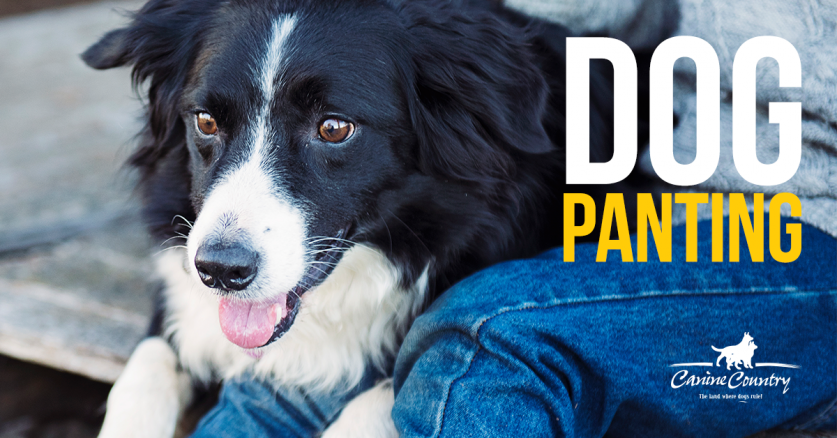
Why is My Dog Panting?
Posted Aug 30, 2017 in Health & Safety
Dogs have many odd traits and habits that you often catch them doing. One thing your dog is doing that be causing you concern is panting. Every dog pants, especially after a great workout or playtime. But are there more serious reasons for panting that you should be worried about? Here is how to tell if your dog is panting normally and some reasons dogs do pant abnormally.
What is a Pant?
Let’s start with what exactly a pant is. When your dog pants, the process eventually helps your dog regulate their body temperature, which is important since dog’s do not sweat as a way to cool down. When your dog is panting, they can be breathing up to 10 times faster than normal, or up too 400 breaths per minute.
Normal vs. Abnormal Pants
Normal Panting
When your dog is outside in the heat, running around or exercising, it is normal to pant. It is healthy for a dog to pant when they feel they are starting to overheat. Normal pants also do not require much effort, since this is a natural function for them.
Abnormal Pants
When your dog is abnormally panting, many things will be different. Your dog will start panting when they aren’t exercising or overly warm. If they start panting when they are just sitting still in a cool place, this isn’t normal. The sound that your dog makes will also be different. It will be harsher and louder. In general it will also seem like they are putting forth more effort to the pant. The pattern will be different and not like their average pants.
If you notice these signs, it is important to check in with your vet. Write down your dog’s symptoms and relay this info so your vet can determine the cause.
Causes
Heatstroke
One cause of this panting is overheating, which leads to a heatstroke. A heatstroke occurs when your dog’s body temp is over 108°F. This can lead to many issues, such as brain swelling, kidney damage, and lack of blood. If you notice your dog is excessively thirsty, has glazed eyes, increased pulse, and a bright red tongue or gums along with the panting, they may be having a heatstroke. Prevention is key with heatstrokes. Make sure your dog is staying hydrated and not out in the heat for too long.
Breed Type
Many breeds of dogs just naturally have breathing issues. Pugs, Boxers, and Bulldogs are all examples of dogs that have challenges in their upper airways. Because of this, they can’t always pant correctly, which can then cause heatstrokes. Make sure you understand how your dog breathes “normally” so you can see the differences when they happen. Your dog’s “normal” will not be like other dogs, so keep in mind how they sound on a day to day basis.
Pain
Paint is another major cause of abnormal pants. When your dog is having a pain in another area of their body, panting can result. The main way to tell if pain is the cause of your dogs pants is if they start to pant at night when they’re resting. It is important that you be observant in your dog’s behavior and actions to see what could be hurting.
Heart Disease
When your dog has a heart problem, the heart can not pump blood the best it should. Therefore your dog will be struggling to get oxygen to rest of the body, which causes them to pant. If you notice that your dog gets tired easily, coughs, or has sudden weakness, it may be a heart disease issue.
Anemia
Just as humans get be anemic, so can dogs! If your dog is anemic, they have a low volume of red bloods cells which leads to lack of oxygen around the body. The panting is a way to speed up the process. If your dog is also lethargic, has an elevated heart rate, loss of appetite, or pale pink/white gums or tongue, this may be anemia. Tell your vet the symptoms and they can get your dog on medication.
Anxiety and Stress
Lastly, your dog could be panting because they are stressed and anxious. This issue is more metal than physical and usually your dog will also lick their lips, yawn excessively, cry, hide, etc. This may occur in a specific situation that gives your dog anxiety, such as a flight or car ride. This is relatively normal. But if your dog is just generally afraid or stressed for a longer period of this, this is concerning.
Let your vet know if you notice any of these symptoms and be sure to observe when your dog is excessively panting.